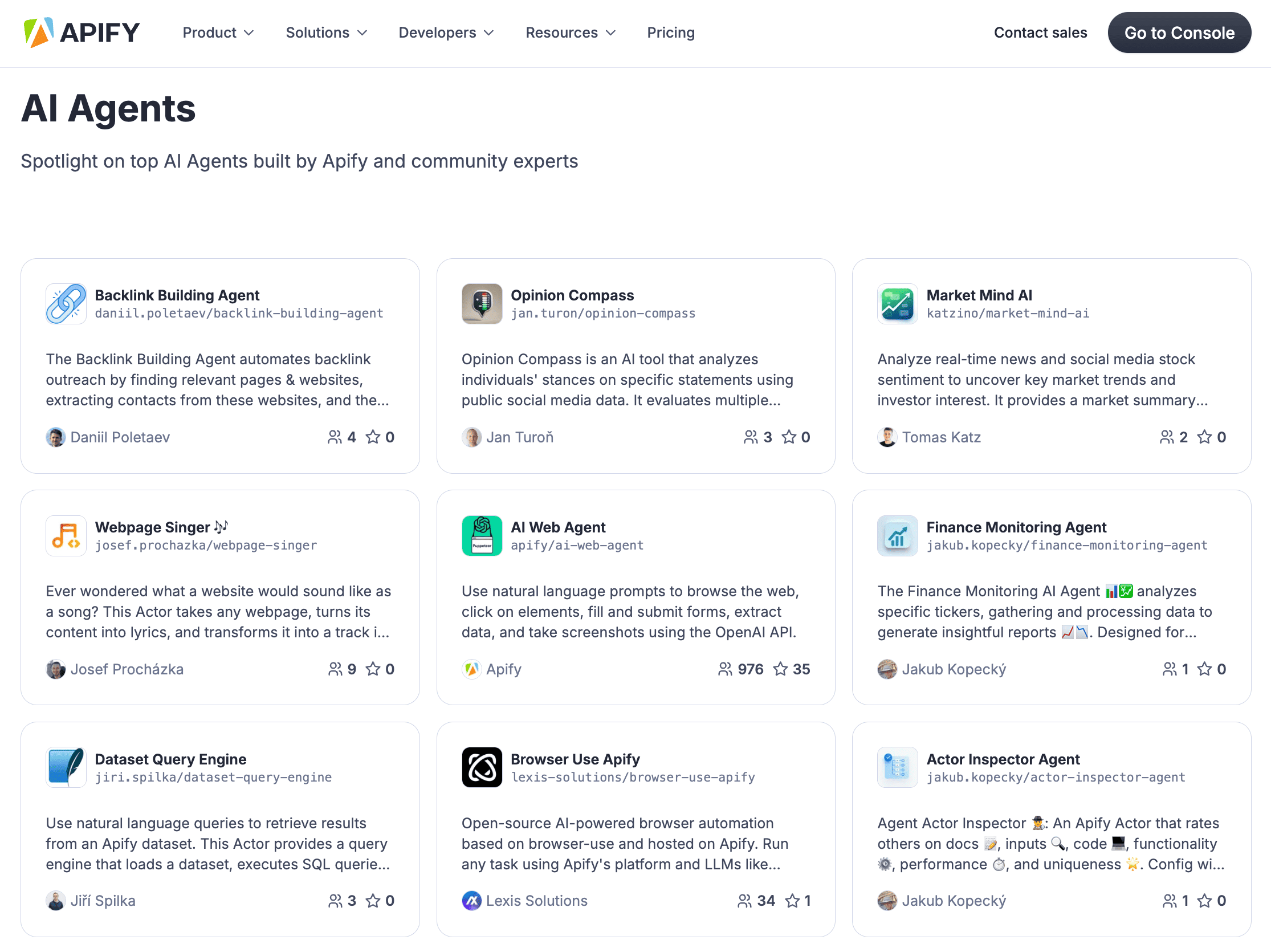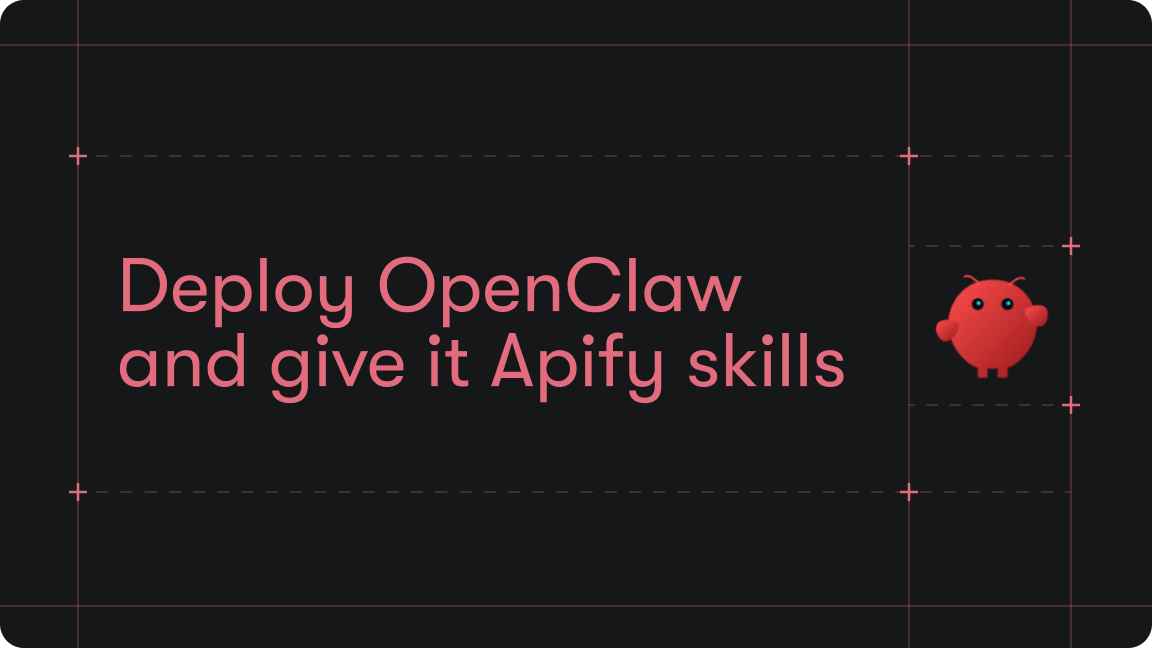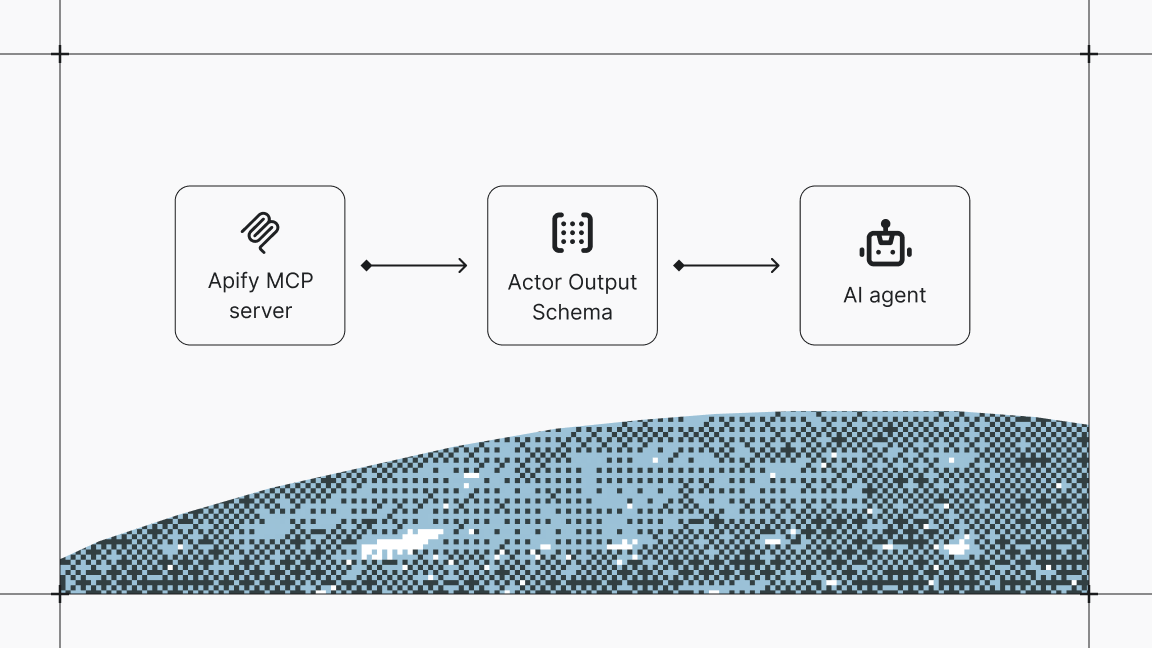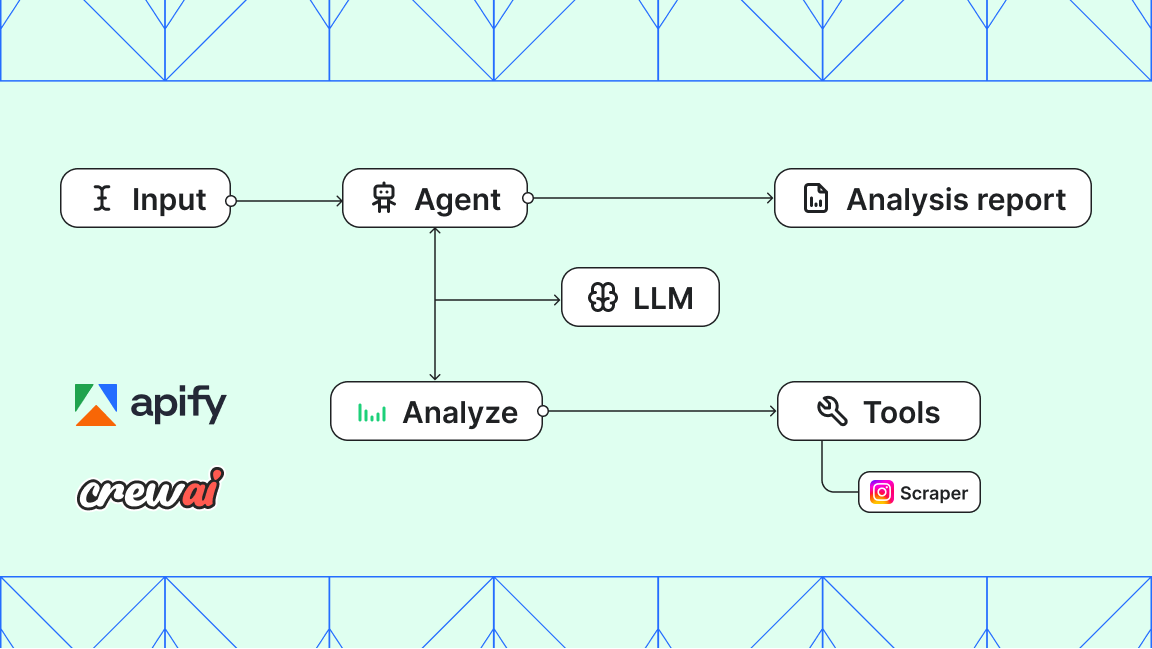If 2023 was all about ChatGPT and AI chatbots, 2025 is all about AI agents. And while it's reasonable to be a little skeptical about the latest LLM hype, it looks like agents really are a significant development in the application of large language models.
But what exactly makes an AI system an agent? Let's go through the agent spectrum, from simple reflexive systems to complex collaborative ones, and understand their role in modern applications.
How do you define an AI agent?
An AI agent is a system that observes its environment, processes input, and takes actions to achieve specific objectives. True agents go beyond simple rule-following - they reason about their goals, make decisions, and sometimes adapt based on experience. While many applications today approximate these capabilities, understanding the categories of agents helps clarify where they fall on this spectrum.
- Why we care: Apify Actors exemplify the practical application of modern AI agent concepts. These cloud-based programs automate tasks like web scraping, data processing, and workflow automation and embody several agentic characteristics.
Types of AI agents and their modern applications
1. Goal-based agents
These agents are autonomous problem-solvers. They reason about the best actions to achieve specific outcomes. This reasoning based on an objective is what distinguishes them from simple reflex systems.
- Modern application: AI-powered project management assistants that adjust timelines and resources to meet project goals.
- Apify Actor examples: Real estate, newsletter, or monitoring agents. These are the types of AI agents you can build on the Apify platform.
2. Learning agents
A key difference between an AI agent and an AI tool is its ability to learn and adapt. Learning agents can refine and improve their reasoning over time. This makes them efficient at problem-solving, even when conditions evolve.
- Modern application: Personalized AI health coaches adapting recommendations based on ongoing health outcomes.
3. Hierarchical agents
Hierarchical agents organize decision-making into a structured ranking order, with high-level agents overseeing lower-level ones. This allows for efficient management of complex tasks by breaking them down into smaller, more manageable subtasks
- Modern application: Smart manufacturing systems that coordinate multiple levels of production, from high-level planning to individual machine operations.
4. Reflex agents
The foundation for real-time decision making, reflex - or reactive - agents operate in the here and now, responding directly to stimuli without "thinking ahead." While limited, they qualify as agents because they autonomously map inputs to actions.
- Modern application: High-frequency trading systems making split-second decisions based on market conditions.
5. Model-based agents
Model-based agents are contextual decision-makers. They introduce reasoning by maintaining an internal model of the environment. This allows them to predict future states and make informed decisions.
- Modern application: Advanced climate modeling systems integrating real-time data for disaster preparedness.
6. Utility-based agents
Utility-based agents reason about trade-offs to optimize for multiple objectives and maximize overall value. Their reasoning involves weighing competing priorities, which makes them more adaptable than goal-based agents.
- Modern application: Smart city management systems balancing energy consumption, traffic flow, and public safety.
7. Multi-agent systems (MAS)
As the name suggests, a multi-agent system is not a different type of agent but an application of multiple types. Each agent in the MAS interacts with other agents to achieve a common goal. What distinguishes them from hierarchical agents is that each agent has its own goals and capabilities.
- Modern application: Supply chain management systems coordinating between manufacturers, suppliers, logistics providers, and retailers.
- Our vision for the Apify platform includes multi-agent systems that oversee and coordinate multiple specialized agents. Rather than following a static workflow, these meta-agents dynamically adjust tasks, delegate responsibilities, and optimize performance based on real-time data. This approach gives agents a high degree of flexibility and allows tackling complex challenges.
AI agents on Apify

The promise of AI agents lies not just in their ability to automate tasks but in their potential to transform how we work, collaborate, and solve problems at scale. Apify Actors exemplify some of the practical applications of agentic AI and are currently capable of hosting goal-oriented agents. You can learn more about building agents with Apify here.
More about AI agents
- How to build an AI agent - A complete step-by-step guide to creating, publishing, and monetizing AI agents on the Apify platform.
- AI agent orchestration with OpenAI Agents SDK - Learn to build an effective multiagent system with AI agent orchestration.
- 5 open-source AI agents on Apify that save you time - These AI agents are practical tools you can test and use today, or build on if you're creating your own automation.
- AI agent workflow - building an agent to query Apify datasets - Learn how to extract insights from datasets using simple natural language queries without deep SQL knowledge or external data exports.
- 11 AI agent use cases (on Apify) - 10 practical applications for AI agents, plus one meta-use case that hints at the future of agentic systems.
- What are AI agents? - The Apify platform is turning the potential of AI agents into practical solutions.
- The state of MCP - The latest developments in Model Context Protocol and solutions to key industry challenges.
- How to use MCP with Apify Actors - Learn how to expose over 4,500 Apify Actors to AI agents like Claude and LangGraph, and configure MCP clients and servers.
- 10 best AI agent frameworks - 5 paid platforms and 5 open-source options for building AI agents.
- AI agent architecture in 1,000 words - A comprehensive overview of AI agents' core components and architectural types.
- 7 real-world AI agent examples in 2025 you need to know - From goal-based assistants to learning-driven systems, these agents are powering everything from self-driving cars to advanced web automation.
- LLM agents: all you need to know in 2025 - LLM agents are changing how we approach AI by enabling interaction with external sources and reasoning through complex tasks.








